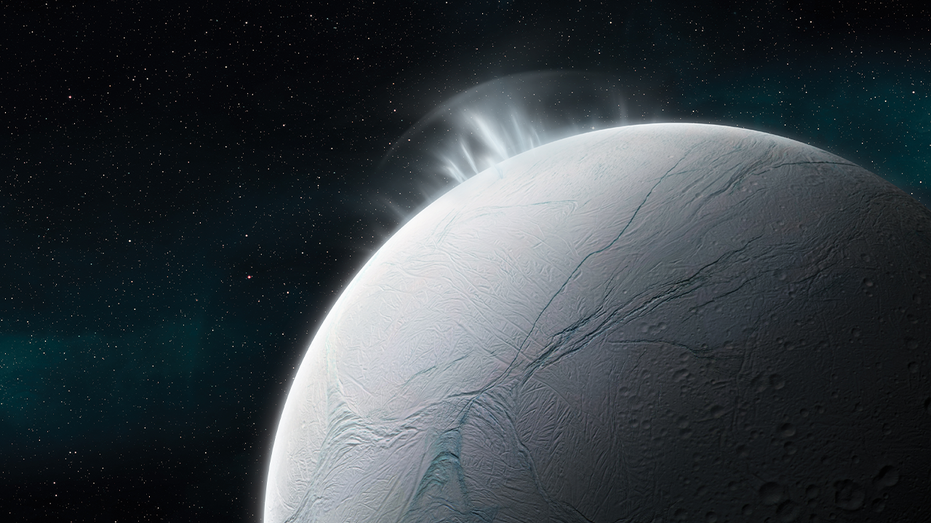Moon in solar system has elements needed to support life: scientists
Scientists studying data collected by NASA's Cassini mission found Saturn's moon Enceladus has the necessary materials to make it habitable.

Scientists have determined Saturn's moon Enceladus has the necessary materials to make it habitable, according to a new study.
"We previously found that Enceladus’ ocean is rich in a variety of organic compounds," planetary scientist Frank Postberg of Freie Universität Berlin said of the new study published in the journal Nature Wednesday.
"But now, this new result reveals the clear chemical signature of substantial amounts of phosphorus salts inside icy particles ejected into space by the small moon’s plume. It’s the first time this essential element has been discovered in an ocean beyond Earth," he added.
Scientists have long studied the icy moon Enceladus and recently analyzed frozen spray from the satellite that was collected by NASA’s Cassini mission. Researchers, led by Postberg, discovered phosphorus salt ice grains from Saturn's E ring, according to NASA.
Phosphorus is "a key chemical element for many biological processes," according to NASA's press release, and likely indicates that phosphorus is abundant in the moon's subsurface ocean.
"The element is a building block for DNA, which forms chromosomes and carries genetic information and is present in the bones of mammals, cell membranes and ocean-dwelling plankton. Phosphorus is also a fundamental part of energy-carrying molecules present in all life on Earth. Life wouldn’t be possible without it," NASA said.
Scientists previously determined the ice grains collected from the moon included other elements that would create habitable conditions, including sodium, potassium, chlorine and carbonate-containing compounds.
Water from Enceladus' subsurface ocean shoots out through the moon's icy exterior, forming a plume that feeds into Saturn's exterior E Ring, according to NASA. The Cassini mission, which was conducted from 2004-2017, flew through the plume and E-ring multiple times and collected data that was later analyzed by Postberg and his team.
Co-researcher Christopher Glein, planetary scientist and geochemist at Southwest Research Institute in San Antonio, said that though researchers are excited to discover elements to create habitable conditions, no life has been discovered on the moon or anywhere else other than Earth.
"Having the ingredients is necessary, but they may not be sufficient for an extraterrestrial environment to host life. Whether life could have originated in Enceladus’ ocean remains an open question," Glein said.






















